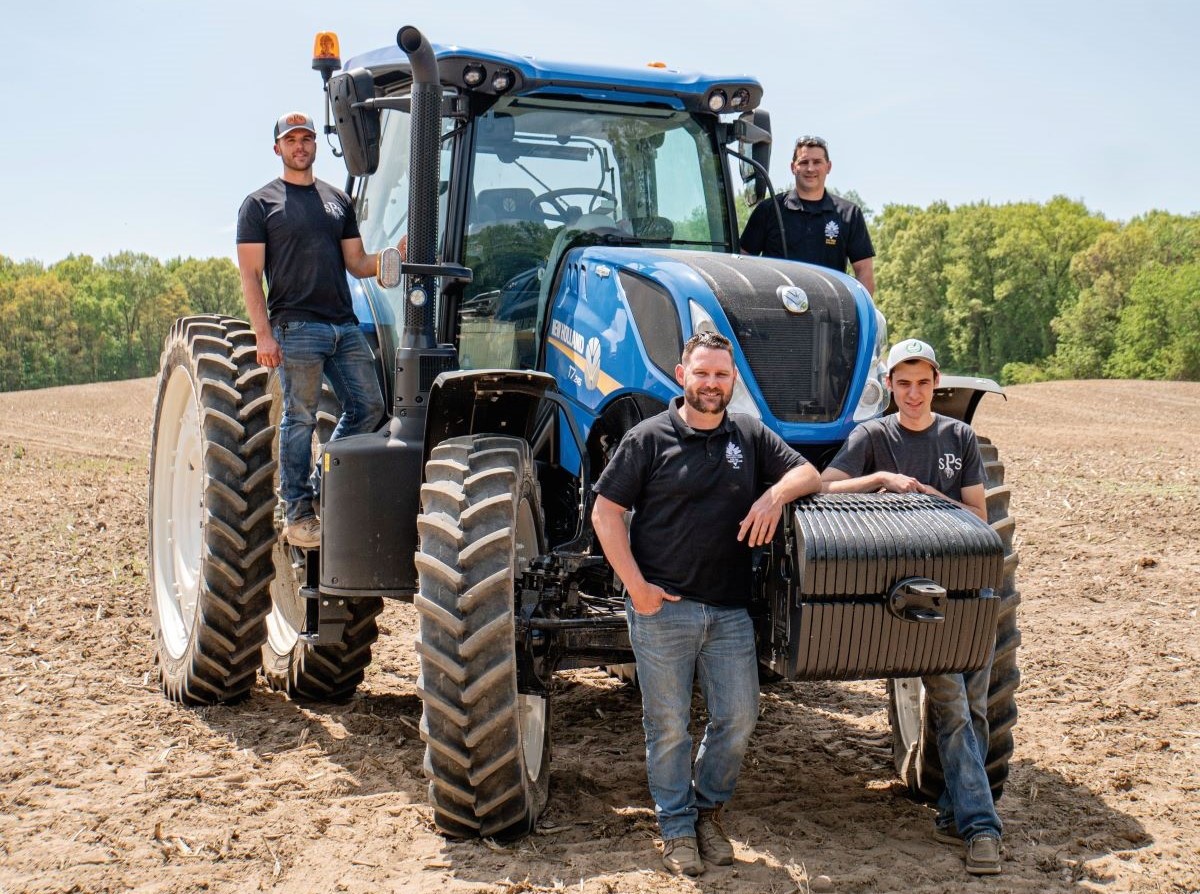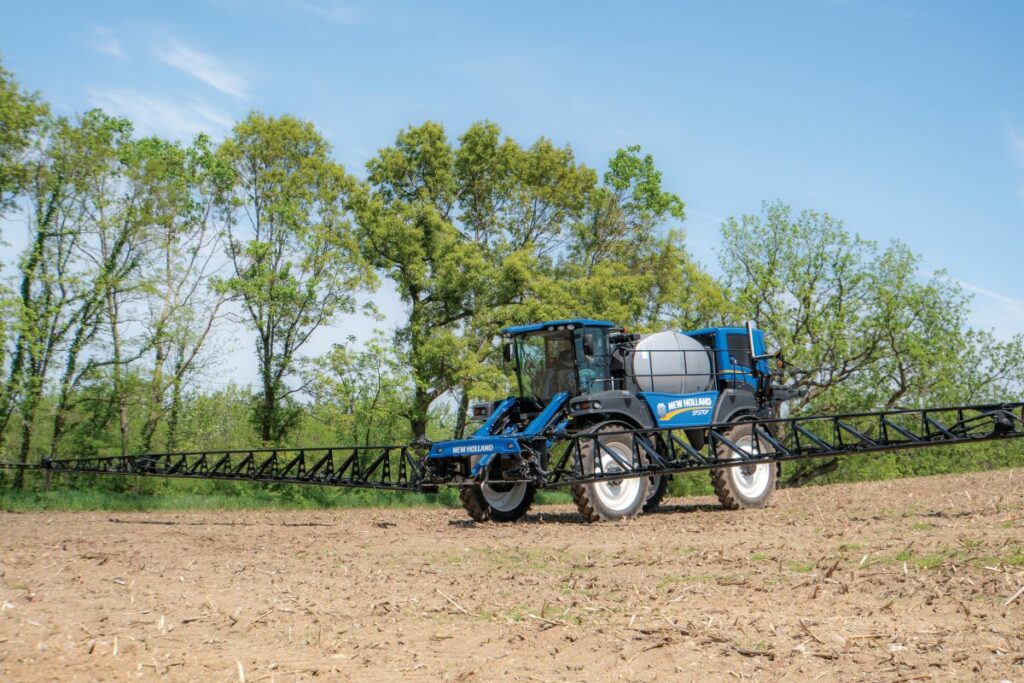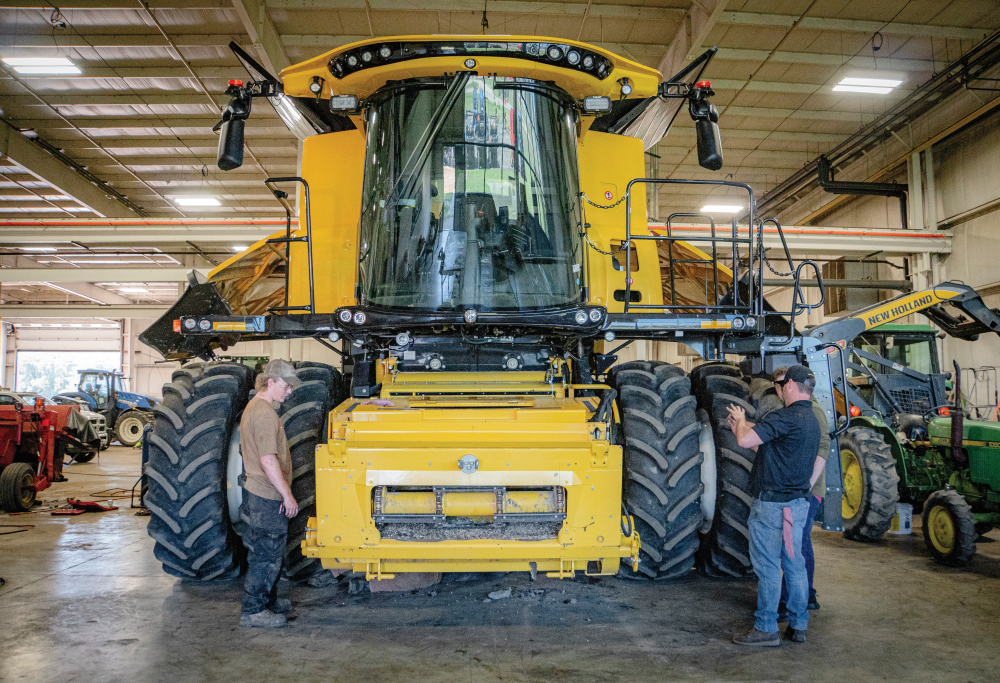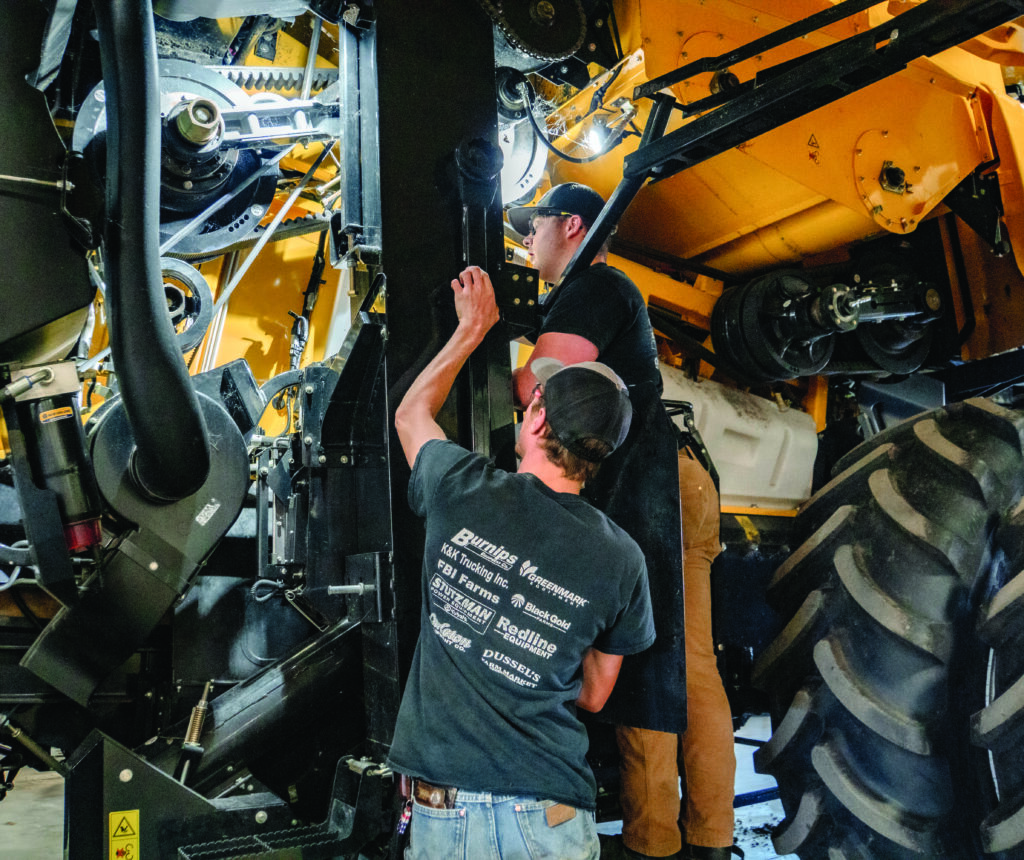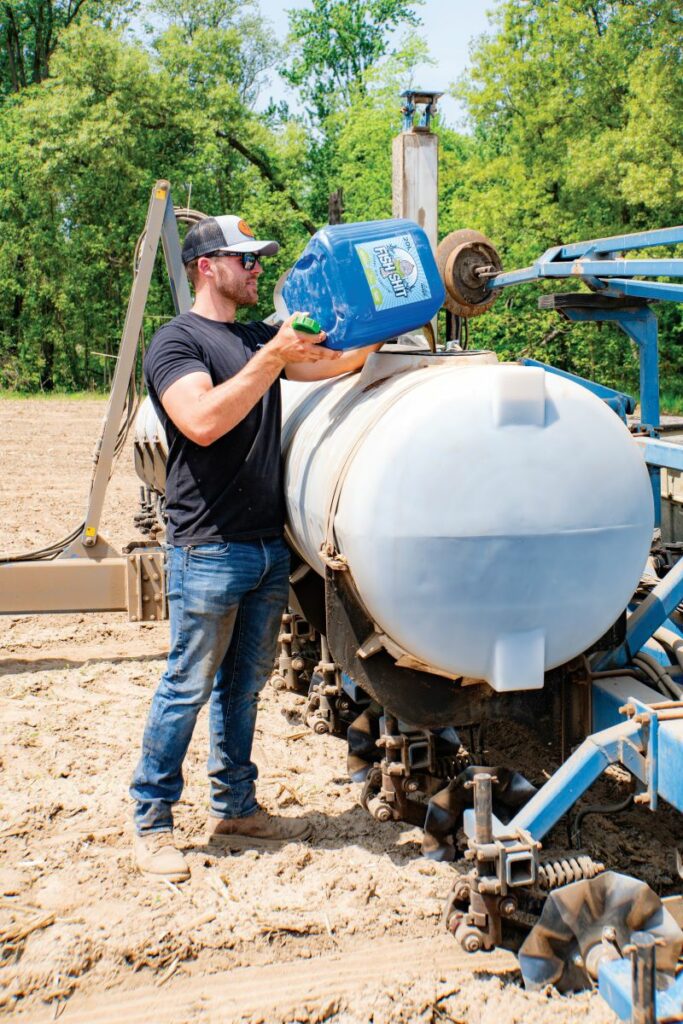By Grant Zamora
FISH POOP: Crops love it.
Glen Oaks Community College in Centreville is at the heart of an agricultural innovation that prepares students for a lifetime of employment while also experimenting with what could be a game changer for crop yields: Fish Sh!t, an unusual, beneficial bacteria created by Fish Head Farms.
A SMALL COLLEGE AHEAD OF THE CURVE
The Agricultural Equipment Technology program at Glen Oaks Community College, taught by Reid Leaverton, is the only agricultural equipment repair program offered at a community college in Michigan. Classes take place at Burnips Equipment in Three Rivers, where students get real-world experience working on equipment that gets brought into the shop. In exchange, if Burnips decides to hire a student, Glen Oaks will pay for the student’s tuition as long as they’re employed by Burnips for the duration of the program.
The program got its start in 2017, when Glen Oaks President David Devier saw the need for trained repair technicians in the largely agricultural St. Joseph County. Rather than wait for other colleges to train new employees, Glen Oaks led the charge in creating a program that could bring new talent to the area. Upon completion of the program, students are placed into equipment dealers or large farms through relationships Glen Oaks has with industry partners like Burnips, New Holland Agriculture, and local John Deere and Bobcat dealers. As of this year, 24 students have accepted jobs at local dealerships upon completing the program.
Students can take two routes through the program. One is a traditional degree route that grants an Associate of Applied Science in agricultural equipment technology. The other is a certificate route, which eliminates the need for general education classes and a high school diploma.
“[If] they have an interest in agricultural equipment, they can come to Glen Oaks and learn how to work on it,” Leaverton says.
Collin Dussel is a program graduate whose family owns Dussel’s Farm Market & Greenhouses in Cassopolis. Dussel, who originally brought Fish Sh!t to Leaverton’s attention, says the hands-on nature of the program was key to the learning process.
“We were in a real-world shop learning what other mechanics do,” Dussel says. “It wasn’t something we just tore apart that someone else tore apart before you. We were diagnosing real farmers’ equipment and trying to figure out the problem.”
LOCAL MARKET, CUTTING-EDGE TECH
The program goes beyond teaching students to repair equipment. It gives them problem-solving skills and the ability to innovate. Dussel took these skills and applied them to growing and improving his family’s farm using new and innovative products like Fish Sh!t.
After graduating from the program, Dussel took over his grandfather’s farm and began looking into alternative fertilizers, all the while keeping in touch with Leaverton, who would help him with larger projects on a friendly basis. In addition to running the farm, Dussel and his brother Nick founded Soil Production Solutions, a company that helps farmers with their soil treatment plans. During their search for clean, efficient fertilizers, the brothers’ father Mark (who runs the store in Cassopolis) connected them with a promising lead: Fish Sh!t.
Fish Sh!t is an organic, living beneficial bacteria. It was created by Dave Barr, a high school biology teacher, and Tommy Fox, a medical caregiver, who founded Fish Head Farms. Fish Sh!t is derived from fish manure treated in an aquaponic system, which separates the beneficial bacteria from the waste. It has fewer synthetic chemicals than other fertilizers, which lends itself to creating a beneficial biosphere for plant growth, according to Leaverton. If a plant has to break down fewer synthetic chemicals and more organic material, the plant doesn’t have to work as hard to take in nutrients, allowing better growth and a higher crop yield.
SMALL-TOWN INNOVATORS JOIN FORCES
The Dussels first tested Fish Sh!t on their mom’s houseplants, with encouraging results. They then partnered with Leaverton to test it at Glen Oaks, starting with soil samples and expanding to larger areas. When testing the product on corn, they found about a 26% increase in root mass and a yield increase of about a bushel per harvest.
Leaverton and the Dussels have used Fish Sh!t to revitalize a previously barren plot of land at Glen Oaks, now a field with healthy soil. Students in Leaverton’s program use the field to grow crops, which they then test the agricultural equipment on.
“What we’re doing is basically just making our plants and our soil happier from year to year to year,” Leaverton says.
The Dussels have also started selling smaller quantities of the product for home use at their store in Cassopolis.
Glen Oaks and the Dussels are living proof that you don’t always have to look to large, expensive universities to find promising new products and one-of-a-kind educational programs. Sometimes, small-town innovation can yield big results.

